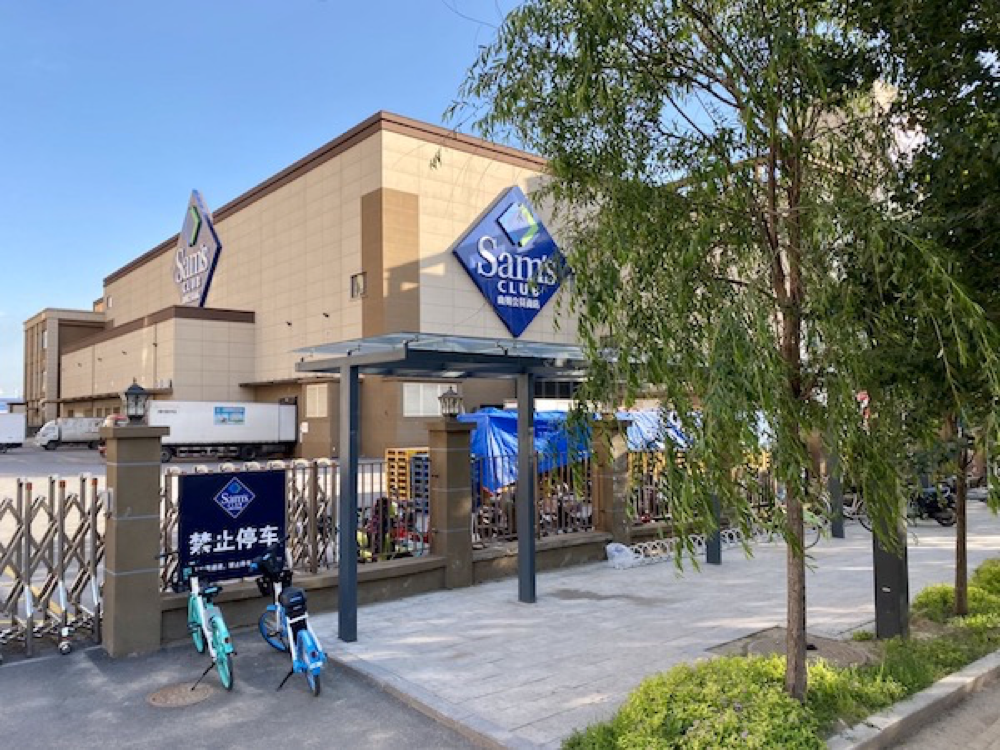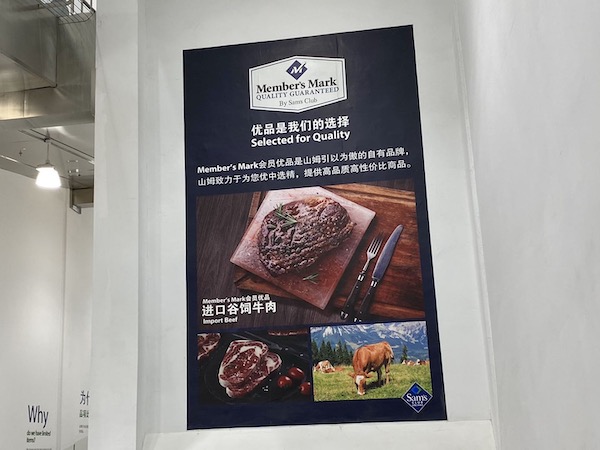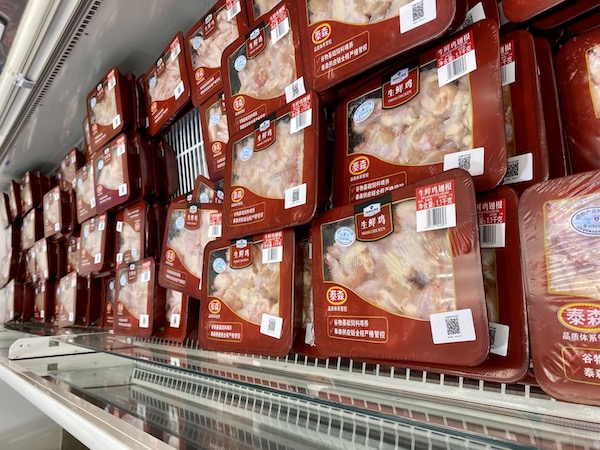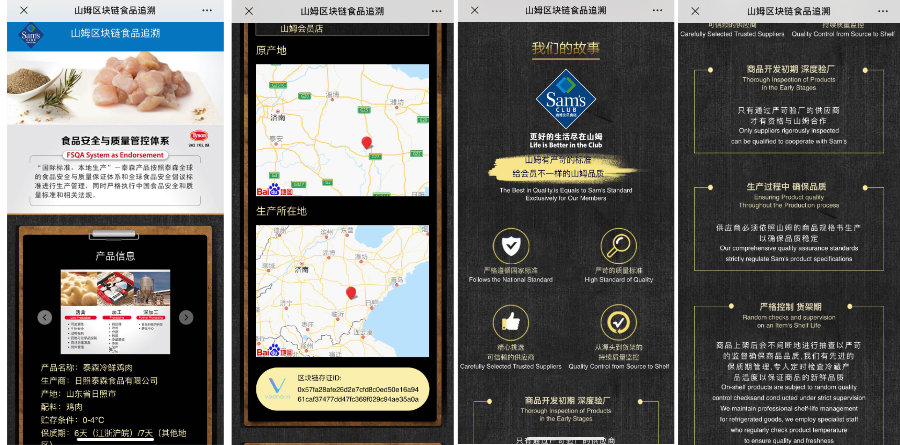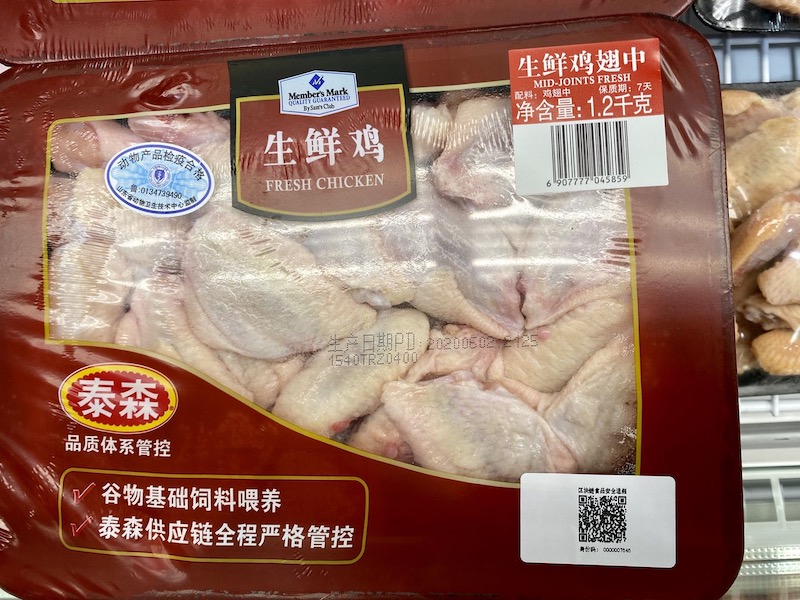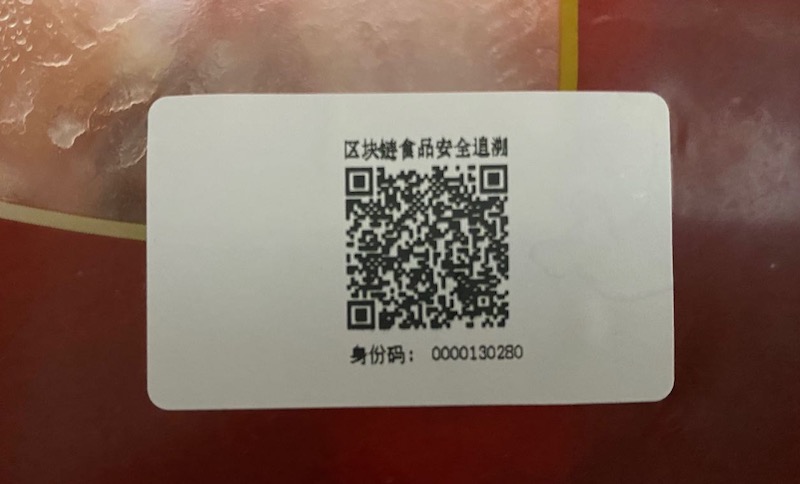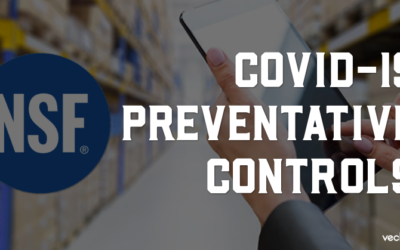
Sam’s Club in China – is blockchain really being used?
For many “partnerships” in the blockchain space, a new announcement doesn’t always mean what the community would expect. Facts are often overstated, raising investor expectations while little action is actually seen on the blockchain. This week’s major announcement that VeChain would be the public chain infrastructure of Sam’s Club in China might have been no different, except for one key difference: the product is already on the shelves.
Making a case for Sam’s Club
While parent company Walmart China is a major whale in China’s retail industry, Sam’s Club is no minnow. COVID-19 has encouraged the Chinese marketplace to alter their buying patterns from daily shopping to less frequent bulk grocery shopping trips, a trend that has caused Sam’s Club to grow at a faster pace than regular Walmart outlets in China. This double-digit growth has caused Walmart Inc to announce the planned opening of 100 more Sam’s Clubs over the next 8 years.
Sam’s Club in China targets a higher class customer by carrying bulk imported items that focus on quality and safety. Having a members-only policy makes the brand feel exclusive, with a yearly fee of around $35 (US) just to make a purchase. Their signature Member’s Mark stamp is applied to products sold throughout the store, with in-store marketing featuring the country of origin and other provenance data, making it an ideal use case for blockchain solutions.
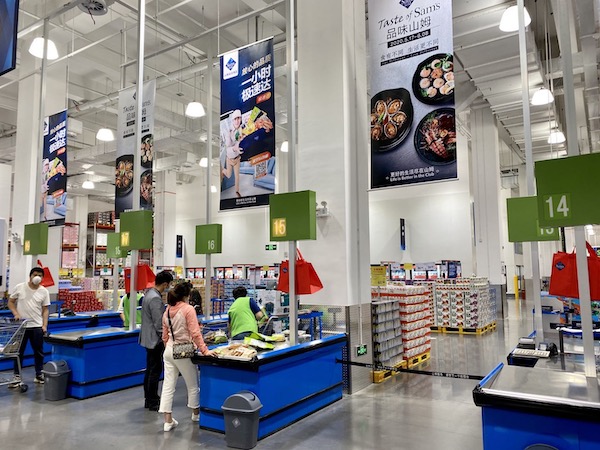
So are they using VeChain or not?
Sam’s Club members are no stranger to technology – the membership is registered through a WeChat Mini-program, and many products throughout the store have QR codes offering more information. Their online service offers home delivery in under one hour, a major attraction for consumers, especially in a country still cautious about potential virus infections.
After a quick look around Shenyang’s spacious Sam’s Club, it didn’t take long to find products tagged with the Blockchain Food Safety & Traceability QR Codes (powered by VeChain’s ToolChain). An entire freezer section of fresh chicken meat from Tyson Foods was tagged. The QR codes shared the details of the product’s journey from being raised and processed in China’s Shandong province to the store in Liaoning’s capital city. It’s worth noting that Tyson Foods China was established in 2001 and is a subsidiary of the US company Tyson Foods.
It’s clear that efforts from Sam’s Club to validate products from third-party suppliers is swinging into force. A glance at vechainstats.com shows that daily data clauses on weekdays are now routinely over 100k – a marked increase over the inconsistency of previous months. As the traceability program continues to roll out and cover more products, an optimistic outlook becomes more probable over the coming months.

